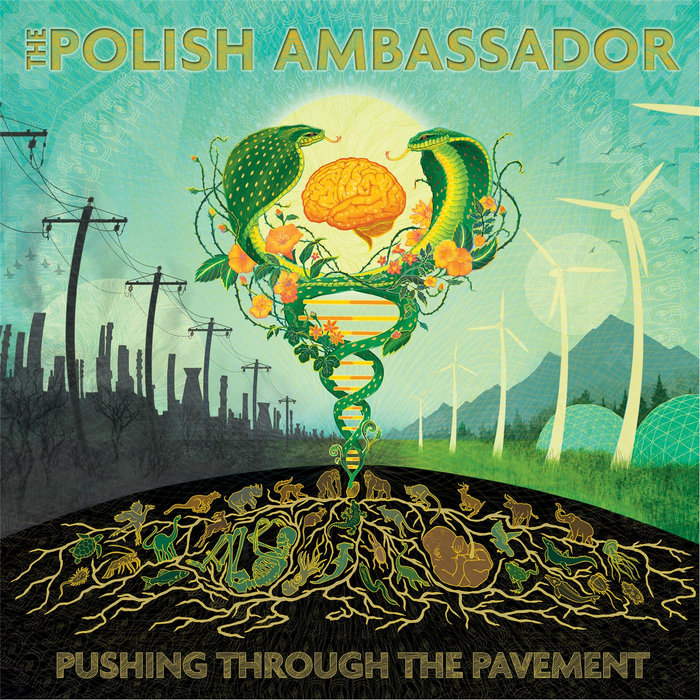
Rise and Release ft. Raashan Ahmad – The Polish Ambassador
this blog is GROOVY – check out great Soul, Funk, Jazz, Hip Hop, Bass, Breaks , Reggae, House n many more TUNES
Hey there, music lovers! Let’s take a funky ride through the history of free music—a genre that really embodies the spirit of creativity, community, and freedom. Grab your headphones, kick back, and let’s dive into this rhythmic exploration!
Before we crank up the volume on its history, let’s get groovy with what we mean by free music. Essentially, it refers to music that is made available for free public use—no strings attached! This can include anything from royalty-free tracks to Creative Commons licensed tunes. Basically, it’s all about accessibility and breaking down musical barriers.
The seeds of free music were sown in the fertile ground of artistic expression long before “free” became a buzzword. Way back in the 1960s, folk musicians like Bob Dylan and Joan Baez championed an open approach to songwriting. They often shared their songs freely or covered each other’s works without hesitation (not like today where every sample might lead you down a legal rabbit hole).
Meanwhile in 1970s punk rock circles—think bands like The Sex Pistols—you had artists who rejected commercialism outright. Their gigs were often DIY affairs; they played wherever they could find an audience willing to listen… maybe even for some pizza!
And before we forget about hip-hop! In the late 1970s and early 1980s, DJs started spinning records at block parties using borrowed beats from popular songs while MCing over them—this was as close as one could get to ‘free’ without actually giving away tunes.
Fast forward to 2001 when Lawrence Lessig co-founded Creative Commons, an organization designed to help artists share work freely while retaining certain rights. This was a game-changer! Instead of being tied up in copyright laws that favored big labels and restrictive practices, creators got more control over how their art spread across various channels.
Musicians began slapping those shiny CC logos on their albums like stickers on a skateboard—the new mantra? Share it if you dare!
Did you know that Radiohead, one of modern rock’s most enigmatic bands, released their album “In Rainbows” as a pay-what-you-want download? Fans were given FREE reign—and guess what? They made millions while revolutionizing how albums could be sold.
Over in Norway (land o’ fjords), artist Torgny Bøe once held his own concert where he encouraged fans NOT TO PAY… but instead bring something interesting along—like vintage vinyl or homemade cookies for trading!
As technology advanced through the 2000s with platforms like GarageBand blossoming everywhere—from bedrooms to basements—the doors flung wide open for budding musicians wanting an entry point into creating free music.
Remember MySpace? It wasn’t just social networking; it became breeding grounds for unsigned acts sharing their talent far beyond local venues—even leading some folks directly into major record deals! Crazy times…
It didn’t stop there; soundcloud emerged next allowing everyone from bedroom producers working post-college jobs hustling samples uploaded alongside karaoke covers sung off-key—to flaunt talents with zero financial investment required upfront!
Ever heard about Sharon Jones & The Dap-Kings turning heads after recording live sessions straight onto cassette tape just so they’d have something unique out amidst digital gloss?
Another fun nugget: legendary guitarist Jimi Hendrix, during his live performances would sometimes play impromptu jingles simply because he thought they’d make people laugh—not knowing he’d end up leaving behind some iconic riffs forever etched into rock history!
With platforms such as Bandcamp launching around 2008 (a haven dedicated entirely towards independent artists), opportunities skyrocketed further paving pathways toward monetization based purely around voluntary contributions rather than rigid contracts commonly seen pre-digital era—but still letting listeners bask under sunny skies filled with catchy tunes ripe for downloading.
Let’s not forget Spotify dropping jaws when it launched its freemium model—it allowed anyone access hundreds upon thousands libraries at no cost—with ads crammed between songs making way toward supporting both emerging indie scenes & established superstars alike—all proving there are ways people can score killer playlists without blowing budgets sky-high—it feels so right!!
So here we are at our final destination atop Mount Free Music—a thriving landscape full of vibrant sounds bubbling beneath footfalls echoing fresh creativity worldwide—all thanks partly due technological advancement but mostly driven by passionate souls eager enough keep growing along paths paved previously generations gone by before them…
From jamming out at home studios feeling uplifted knowing gates hurled wide inviting EVERYONE join party atmosphere regardless skill level forged deeper connections throughout time transcending genres fostering unity spreading smiles across faces celebrating life remembering simple joys surrounding us everyday!!
Now go forth my fellow groove-sessioners-seek those charitable tracks bring sunshine melodies unto ears watch how this enchanting world unfolds softly whispering tales yet untold…. 🎶✨

Rise and Release ft. Raashan Ahmad – The Polish Ambassador